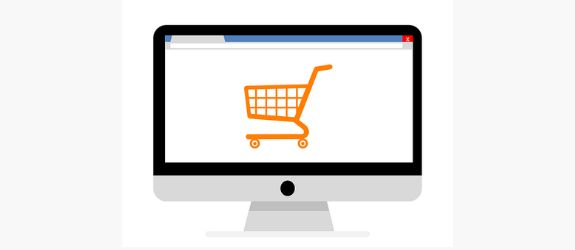Laravel online store: how to run eCommerce with this PHP framework
Laravel is a framework written in PHP by Taylor Otwell in 2011. Laravel is a powerful framework for building custom platforms and marketplaces like Airbnb, Le Ciseau or Uber.
Unlike the other solutions presented, which are 100% e-commerce solutions, Laravel is a framework that allows you to create any type of website. For example, Laravel does not offer payment and delivery modules, etc. by default. However, due to its performance and architecture, customized developments are readily conceivable.
In short, a solution that takes longer to set up, but allows you to have an e-commerce platform with many specific features!
What is a framework?
A framework is simply a set of tools that facilitate the developer’s work and allow him to achieve productivity gains. It forms a cohesive base and generally summarizes the fundamentals of a computer software or web application.
In the case of PHP, frameworks combine a number of basic functions found in most PHP applications. This is the case, for example, with the authentication system, error management or rights management (administrators, editors, visitors, etc.).
Is a framework really useful?
Here you are, you start designing a website and you don’t know any PHP framework. So the question is: Do I need more time to learn how my framework works than to code my website? The largest frameworks are like important extensions of these languages.
Getting started with a framework can take some time, you often have to know and follow more or less strict rules, constantly read documentation, know the available tools, etc. However, the benefit of such a framework is not to spend time developing functions that have already been created by others. Once you master the framework, you’ll be fine much faster and your code will probably look better. Most importantly, the person behind it will understand your code much faster. This is essential for any maintenance, addition or correction.
Laravel was developed with testing in mind. In fact, support for testing with PHPUnit is already included and a phpunit.xml file is already set up for your application. The framework also comes with practical utility methods that allow you to test your applications expressively.
By default, the test directory of your application contains two directories: Feature and Unit. Unit tests are tests that focus on a very small, isolated portion of your code. In fact, most unit tests probably focus on a single method. Tests in your Unit test directory do not boot your Laravel application and therefore cannot access your application’s database or other framework services.
Functional tests can test a larger portion of your code, including the interaction of multiple objects or even a full HTTP request to a JSON endpoint. In general, most of your tests should be functional tests. These types of tests provide the greatest assurance that your system as a whole is working as intended.
Laravel is a well documented framework https://laravel.fr/ that saves time over these competitors. It has a large community, which gives us the opportunity to quickly find an answer in case of doubt, it is also the guarantee of a certain durability of the framework.
The more developers use it, the longer it will last. Laravel is also very complete without being too much, and thanks to its extensive documentation, learning time remains within limits. Its greatest strength is its simplicity, the code you write with Laravel is always simple, readable, concise and pleasant to read.
It includes programming standards as well as the ability to easily add extensions. As the youngest of all PHP frameworks, Laravel quickly became the best choice for PHP frameworks. It’s the simplicity, clarity and flexibility that has also paved the way for many true Laravel e-commerce packages.
But what can you do with this framework?
Laravel is a framework inspired by the best there is, it takes over the Symfony routing system by effectively extending it, it uses the SwiftMailer library to send emails, and much more.
Laravel offers :
- an e-mail dispatch system,
- an efficient routing system,
- an efficient template engine,
- a very practical form creator,
- an authentication system for connections,
- a powerful (eloquent) SQL query builder and ORM,
- As a bonus, Laravel integrates a migration system for databases, a cache system, session management, etc.
Comparison with WooCommerce
WooCommerce is used to sell products and services on a WordPress site. Launched in 2011, WooCommerce is a WordPress plugin that lets you add e-commerce features.
It is widely used on merchant sites in Germany and allows you to create a real online store with a moderate number of products (less than 50) and with simple product variations. With WooCommerce it is possible to sell physical and virtual products, products with subscriptions, packs of composite products or even run product promotions.
Woocommerce integrates perfectly with the existing WordPress site and integrates the management, control and statistics of sales into its back office. The strength of this e-commerce solution is that it takes advantage of what WordPress natively offers (power, community, SEO-friendly, etc.). In short, an ideal quick solution to sell your products or services on an existing (or future) WordPress site!
Comparison with Magento
Magento for a powerful and scalable e-commerce platform. Magento CMS is an e-commerce CMS written in PHP by Ebay in 2008. The Magento solution is used by 7.47% of e-commerce sites worldwide. Magento CMS is a powerful, scalable e-commerce solution that requires a relatively long development time.
Using a Magento provider, while not suitable for all e-commerce site projects (few products, no complex features, few payment methods), is ideal if you want to have the following:
- Powerful, fast and scalable e-commerce.
- A site with connections and interfaces to third-party solutions (ERP, CRM, etc.).
- Many products with strong personalization (color, size, custom configuration).
- Multiple stores, multiple languages, multiple currencies, multiple countries.
- Many advanced features to manage inventory, manage delivery costs, manage promotions or manage different payment methods.
- In short, Magento is a longer solution to set up, but allows you to have an e-commerce site with many interesting shopping features (multiple stores, multilingual languages, web marketing power, links with ERP / CRM).
The fusion of features such as secure authorization, high scalability and personalization. Moreover, the wide community support has made Laravel one of the most popular options for e-commerce hosting development.
Developing an e-commerce project requires a thorough understanding of the e-commerce ecosystem and the corresponding data workflows. Since its launch in 2014, many e-commerce solutions have been offered in open source. However, thanks to regular updates and improvements, only a few survive.
The advantages of the framework in eCommerce
With Laravel Homestead, a “made for you” virtual development environment, getting started is easy. Laravel Homestead is an official pre-built Vagrant box that provides you with a wonderful development environment without the need to install PHP, a web server and other server software on your local computer.
Don’t worry about the degradation of your operating system anymore! If you are a Mac user, you also have the option to use Laravel Valet as your development environment. By the way, Laravel Valet supports Symfony, CakePHP 3, Slim and Zend as well as WordPress. Laravel uses a templating engine called Blade.
The advantage over other template engines is that you can use PHP in Blade, which you cannot do with others. Packalyst, a collection of Laravel packages, offers over 15,000 packages that you can use in your projects.
Laravel provides a set of security methods and features that cover the following:
- Authentication
- Approval
- Email verification
- Encryption
- Hash
- Reset password
Conclusion
In summary, Laravel is a very complete and very powerful framework. It is characterized by being more permissive and flexible than its colleague Symfony.
The fact that it is very accessible with its extensive documentation and active communities makes Laravel very attractive when choosing a framework. Once taken in hand, it becomes complicated to get rid of it.
Interesting posts on the topic:
aimeos, one of the interesting eCommerce tools from this area
More information about Laravel online store capabilities

Sascha Thattil ist Geschäftsführer bei YUHIRO. YUHIRO unterstützt Agenturen, IT Dienstleister und IT Abteilungen bei dem Aufbau von Webentwickler/ Laravel Entwickler Teams in Indien.


Leave a Reply